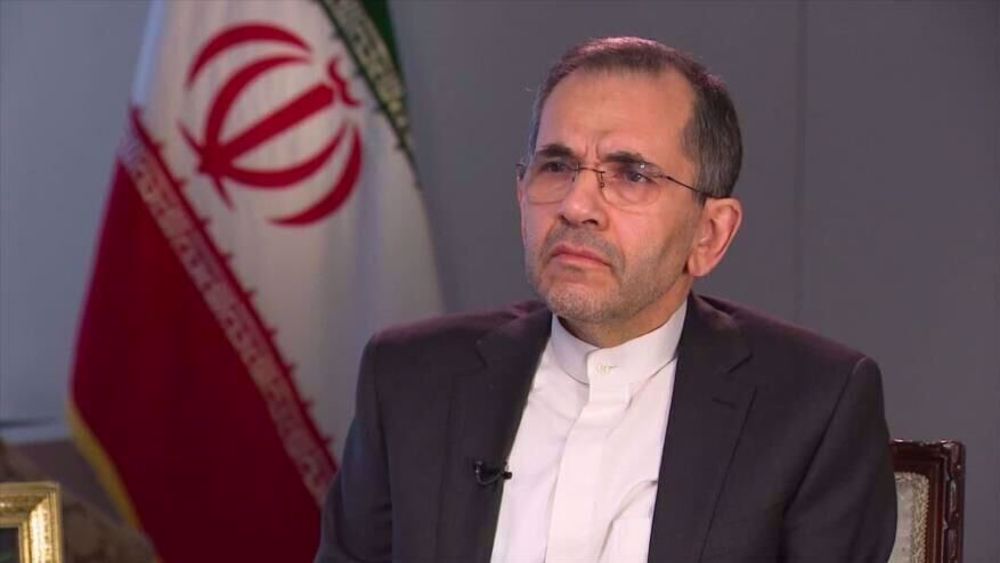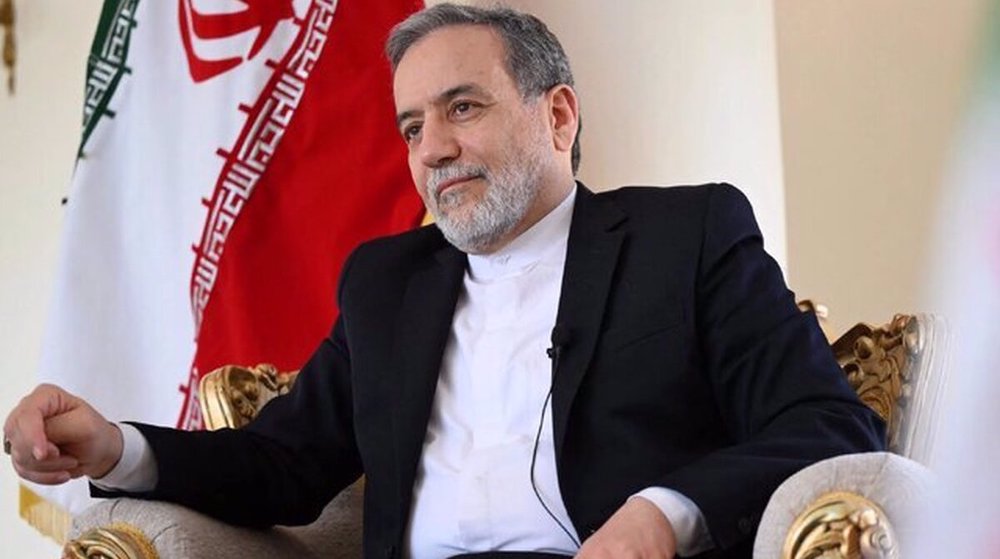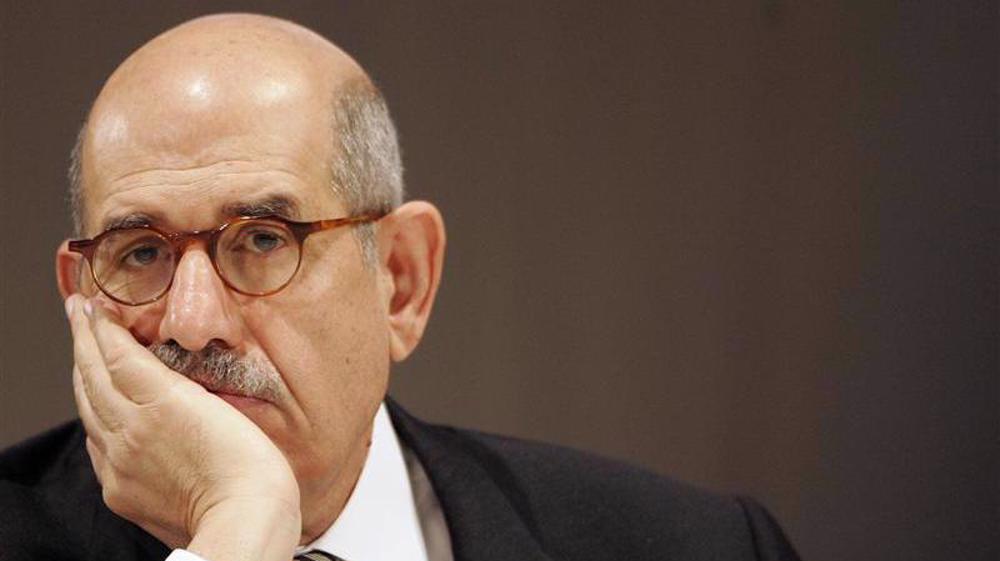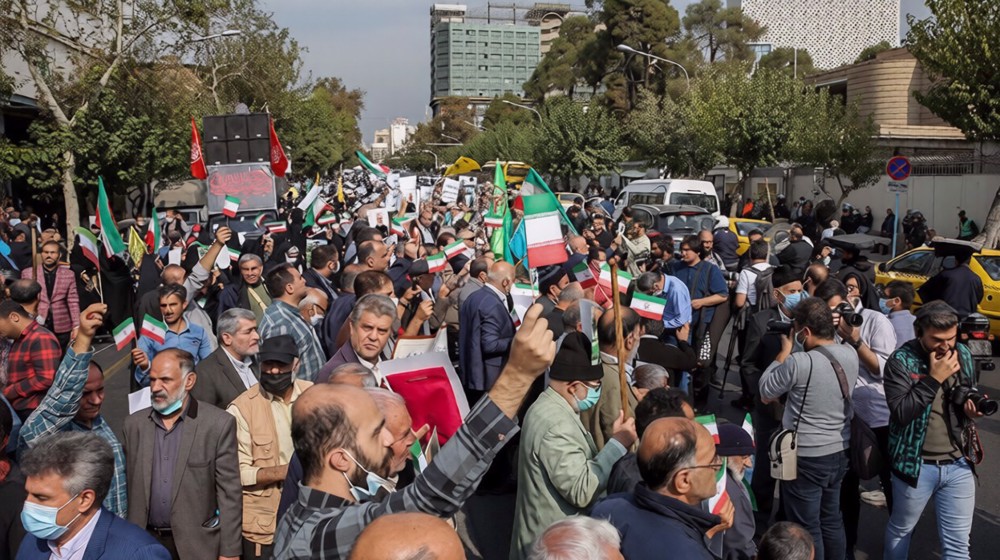Reaching agreement ‘possible’ if US ends intimidation, threats: Iran’s deputy FM
A senior Iranian diplomat says it is likely that Iran and the United States reach an agreement if Washington stops its intimidation and threats against Tehran.
"If the American side does not raise unrelated issues and demands and puts aside threats and intimidation, there is a good possibility of reaching an agreement,” Iran's Deputy Foreign Minister for Political Affairs, Majid Takht-Ravanchi, said on Friday.
“The Islamic Republic of Iran believes in dialogue and interaction based on mutual respect; and any form of bullying and coercion is unacceptable to us.”
Takht-Ravanchi made the remark while addressing a meeting with ambassadors, diplomats and intellectuals held at the Institute of International Politics and Economics in Belgrade.
His speech comes ahead of indirect talks between the Islamic Republic and the US on Tehran’s peaceful nuclear program which is scheduled to be held in the Omani capital of Muscat on April 12.
Takht-Ravanchi reaffirmed Iran’s readiness to hold talks on its peaceful nuclear program in line with its policy of interaction.
He said Iran has held nuclear talks with China, Russia and the European troika – France, Germany and Britain – in recent months.
The senior Iranian diplomat said the country’s principled stance is based on establishing “best” relations with the neighboring countries.
“Negotiations and interaction are the most important strategy to solve regional issues,” Takht-Ravanchi stated.
On April 8, Iranian Foreign Minister Abbas Araghchi said the Oman talks are an opportunity to test the seriousness of the US, “which has a long history of non-commitment and unilateralism."
"The nuclear issue, in the sense of providing clarity and assurance about the peaceful nature of Iran's nuclear program in exchange for the lifting of oppressive sanctions, is the only issue under discussion," he added.
In 2018 and during his first term in office, US President Donald Trump withdrew the United States from a previous agreement on Iran’s nuclear program – formally known as the Joint Comprehensive Plan of Action (JCPOA) -- and launched a maximum pressure campaign against the country.
Trump restored that policy after returning to the White House for a second term in January, but he has since signaled a willingness to make a new deal to replace the JCPOA.
On March 12, Trump sent a letter to Leader of the Islamic Revolution Ayatollah Seyyed Ali Khamenei, asking for negotiations to reach a new deal and threatening military action if Tehran refused.
Iran has ruled out direct negotiations with the US under pressure and threats but says indirect talks remain an option.
Hamas blasts Western media for blindly defending false Israeli narrative
ElBaradei condemns US threats of military action against Iran
‘No two-hour war’: Iran vows immediate retaliation to any attack
VIDEO | US warmongering threatens stability
Pezeshkian: US must end provocations if it seeks genuine diplomacy
Iran summons German ambassador over Merz’s ‘low-minded’ remarks
Iran's Armed Forces warn EU of ‘consequences’ of IRGC designation
Iran FM: EU’s blacklisting of IRGC a ‘major strategic mistake’











 This makes it easy to access the Press TV website
This makes it easy to access the Press TV website